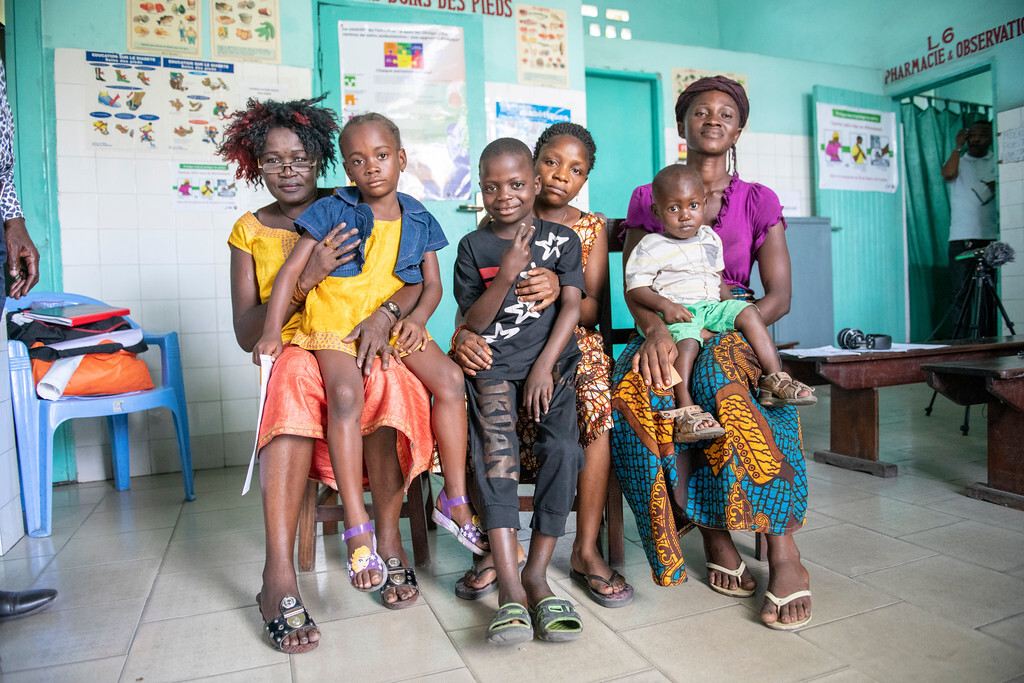Childhood TB, a preventable and curable infectious disease, continues to negatively affect the lives of millions of children and adolescents every year. In 2020, children (younger than 15) accounted for 11% of the total burden of TB in 2019, but the majority of them remain undiagnosed and untreated.1 For too long, childhood TB has been poorly addressed by the global public health agenda and often has been neglected by health policymakers and TB control programs. As part of its Unitaid-supported Catalyzing Pediatric Tuberculosis Innovations project, the Elizabeth Glaser Pediatric AIDS Foundation (EGPAF) carried out assessments of the national policy landscape and country preparedness for childhood TB in 2018 and 2021 in 10 countries (Cameroon, Côte d’Ivoire, Democratic Republic of Congo, India, Kenya, Lesotho, Malawi, Tanzania, Uganda, and Zimbabwe).
The purpose of the 2021 assessment is to:
- evaluate progress made by the countries over a period of three years,
- identify areas that need sustained efforts, and
- propose recommendations to bridge the gaps.
Click here to access the Policy Assessment.
Click here to access the Policy Assessment in French.
Click here to access our Call to Action.
View Data Dashboards:
View Appendices:
Appendix A | Appendix B | Appendix C
Based on the findings and recommendations of this assessment, EGPAF calls on national policymakers and TB advocates to do the following:
1. Foster political leadership and accountability.
![]() This is the primary requirement to achieve an effective and fully funded TB response for children and to achieve the targets of the United Nations political declaration on TB and the end TB strategy.
This is the primary requirement to achieve an effective and fully funded TB response for children and to achieve the targets of the United Nations political declaration on TB and the end TB strategy.
2. Scale up systematic TB screening at relevant child health entry points and appropriate active case-finding strategies among children and adolescents at risk.
![]() An active case-finding strategy is the cornerstone of the TB cascade of care and the only way to ensure early diagnosis and treatment.
An active case-finding strategy is the cornerstone of the TB cascade of care and the only way to ensure early diagnosis and treatment.
3. Adopt a comprehensive approach for pediatric TB diagnosis, including clinical assessment, radiological assessment (if available), and use of WHO-recommended diagnostic assays whenever feasible.
![]() Huge gaps remain in TB diagnosis among children and adolescents, and there is no treatment without diagnosis.
Huge gaps remain in TB diagnosis among children and adolescents, and there is no treatment without diagnosis.
4. Ensure the availability of child-friendly formulations of TB medicines for all children with TB.
![]() Delay in initiating effective treatment can have detrimental effects on health. Deferral of endorsement of the best standards of TB/DR-TB treatment care is not defensible anymore.
Delay in initiating effective treatment can have detrimental effects on health. Deferral of endorsement of the best standards of TB/DR-TB treatment care is not defensible anymore.
5. Scale up TPT regimens for children at risk.
![]() Offering TPT to all people at risk is an essential component of the end TB strategy, and an effective action to contribute to the reduction of morbidity and mortality among children and adolescents.
Offering TPT to all people at risk is an essential component of the end TB strategy, and an effective action to contribute to the reduction of morbidity and mortality among children and adolescents.
6. Speed up the integration of TB services into other health services.
![]() Lack of integration of TB services into other services, such as PMTCT, MNCH, nutrition, and OPD general services, is a missed opportunity to find children with TB and put them on treatment.
Lack of integration of TB services into other services, such as PMTCT, MNCH, nutrition, and OPD general services, is a missed opportunity to find children with TB and put them on treatment.
7. Improve M&E frameworks and strategies.
![]() This is necessary to better inform national programs as they move toward their goals, to identify gaps and challenges, and to support the provision of quality care to patients.
This is necessary to better inform national programs as they move toward their goals, to identify gaps and challenges, and to support the provision of quality care to patients.
Read more in the policy assessment and call to action.
1 Child-friendly formulations are currently available only for RH. There is no dispersible formulation for rifapentin.
Currently, HP is recommended only for children older than 2; for children younger than 2, only 3RH is currently recommended as a shorter TPT regimen.
Unitaid is a global health agency engaged in finding innovative solutions to prevent, diagnose and treat diseases more quickly, cheaply and effectively, in low- and middle-income countries. Our work includes funding initiatives to address major diseases such as HIV/AIDS, malaria and tuberculosis, as well as HIV co-infections and co-morbidities such as cervical cancer and hepatitis C, and cross-cutting areas, such as fever management.
Unitaid is now applying its expertise to address challenges in advancing new therapies and diagnostics for the COVID-19 pandemic, serving as a key member of the Access to COVID Tools Accelerator.Unitaid is hosted by the World Health Organization.




